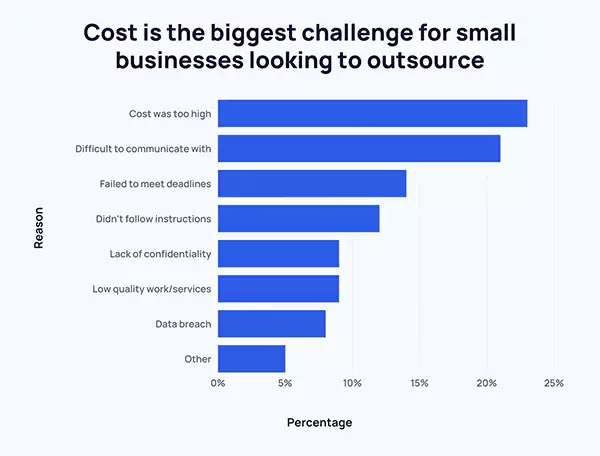Partnering for Success: Building Effective Outsourcing Relationships in the Philippines
In a business, multiple operations are being carried out every day. In business, when it comes to reducing costs, it takes a lot of innovative and creative ideas to figure out new alternatives that can work effectively on cost-cut needs. One of those fabulous ideas is Outsourcing. Outsourcing basically means giving authority to a company that can manage the non-core activities of a firm. For example, many South Asian countries like India, Pakistan, and Bangladesh serve this purpose for various Multi-National Companies.
Therefore, in Today’s topic, you will encounter some of the advantages or challenges that you might face. Moreover, making you aware of the golden opportunity of trying business process outsourcing in the Philippines.
Introduction to Outsourcing Relationships in the Philippines
The country has emerged as a global leader in desired destinations, fueled by various factors such as its highly skilled workforce, exceptional language proficiency, and favorable business environment. For businesses, engaging in this module can be a game-changer, as it provides access to a vast pool of talented professionals capable of helping achieve organizational goals. Whether support is required in customer service, IT, or back-office operations, the destination offers abundant talent. However, building effective business relationships necessitates a deep understanding of the country’s culture, communication styles, and business practices.
Benefits of Outsourcing to the Philippines
You can have an idea of how big this outsourcing trend is getting. The primary cause behind going forward on this path is the cost. According to the data, around 25% of ventures choose this alternative just because of the cost. Since most of the developed English-speaking countries like Australia, the UK, the USA, Canada, and others have very high average pay as compared to Asian countries like the Philippines itself.

This makes the Philippines an attractive destination for ventures to outsource their non-core activities like approaching potential customers or consumer services.
Additionally, shifting non-core operations to Asian countries provides access to a highly skilled and educated workforce. The country boasts professionals proficient in diverse industries such as IT, finance, healthcare, and more. The widespread fluency in English among Filipino workers facilitates seamless communication with Western clients.
Furthermore, it allows your venture to focus on its core competencies. By delegating non-core functions such as customer service and back-office operations, organizations can allocate resources more efficiently and concentrate on their primary business activities.
Communication and Collaboration
Outsourcing to the Philippines requires careful consideration of the significant time zone differences between the country and its Western clients. This can affect real-time communication and collaboration, especially when urgent issues arise. Companies must find ways to manage and bridge this gap to ensure smooth operations and timely responses.
They must establish clear communication channels, provide detailed instructions, and encourage open dialogue to overcome language-related challenges.
Moreover, managing a remote workforce in a different country introduces logistical challenges. Businesses need to establish effective project management systems, implement appropriate communication tools, and foster a strong sense of teamwork despite physical distance. Building trust and fostering a positive working relationship is essential for successful collaborations.
Benefits of Outsourcing to the Philippines
Since people are willing to work on lower pay, the cost of carrying out basic commercial operations certainly drops down. Various giants like Concentrix, Sitel, Accenture, and many more are already playing their game to serve the purpose. The pay scale of these companies is higher than the average therefore employees stay satisfied with the giants.
Another leverage that outsourcing provides is that ventures get to hire the best of the best-skilled talents from the country at certainly lower rates. Various fields like IT, finance, healthcare, and more. Moreover, talking about Filipinos, are a highly able and capable population who can deal with Western clients.
Tips for Building Successful Outsourcing Relationships in the Philippines
To build successful relationships, venture owners should consider the following tips:
1. Thoroughly Research and Select Reputable Partners:
Take the time to research and choose partners with a proven track record of success and positive client testimonials. This ensures that you are working with reliable and experienced professionals.
2. Understand the Local Culture:
Familiarize yourself with the cultural norms, customs, and business practices in the Philippines. This will help you navigate potential cultural differences and build stronger relationships with your outsourcing team.
3. Clearly Define Expectations and Goals:
Establish clear expectations, deliverables, and performance metrics from the beginning of the cooperative relationship. This helps align both parties’ objectives and ensures everyone is working towards the same goals.
4. Foster Open Communication:
Since they are experts in dealing with foreign clients, it promotes a way of open communication around the globe. You are recommended to build relations within the team, Their check-ins, feedback, and concerns should be the priority and the humble and collaborative environment is the most significant.
5. Invest in Training and Professional Development:
Provide regular training and opportunity to develop their standards in professional life. Invest in resources and upscaling the operations by encouraging and motivating them to make something big in their field of work.
6. Use Technology to Bridge the Distance:
Leverage technology tools and platforms to facilitate communication, project management, and collaboration. Video conferencing, project management software, and instant messaging platforms can help bridge the geographical gap and foster effective teamwork.
7. Visit the Philippines If Possible:
If feasible, consider visiting your partner’s location. This allows you to strengthen relationships, understand the local working environment better, and build rapport with your team.
Best Practices for Successful Outsourcing Relationships in the Philippines
Here are some best practices for building successful relationships:
1. Choose the Right Partner
Choosing the right partner is crucial. Businesses must do their due diligence and research potential partners thoroughly. They must also consider factors like the partner’s experience, expertise, and cultural fit.
2. Establish Clear Communication Channels
Establishing clear and regular communication means providing them with a path through which they can communicate with the company or upper management. Communication channels are essential as they ensure regular employee check-in, messaging, and virtual interactions.
3. Set Clear Expectations
Setting clear expectations is crucial in your relationships. Enterprises must establish clear expectations for deliverables, timelines, and quality standards. They must also be proactive in communicating any changes or updates to the project.
4. Provide Regular Feedback
Feedbacks are the key. Regular feedback helps both companies and employees to have a professional relationship with each other. Management should not hesitate to stay away from acknowledging or criticizing the qualities of personnel from their workforce.
Why Outsourcing to the Philippines Can Be a Game-Changer for Your Business
Outsourcing is a crazily effective and cost-saving alternative for carrying out non-core commercial activities of a venture. You get to hire highly skilled and talented personnel from the country and employ them to serve your venture. Specifically talking about the Philippines, the population is highly capable and cooperative which can serve you smooth functioning over time.
Still, your firm should be aware of all the DOs and DONTs of outsourcing. Do not forget to build relations with them and work on their personal and professional development.
